Life Notes
Life Notes is your daily dose of wisdom and inspiration.Each episode shares meaningful lessons, stories, and reflections that bring clarity and spark positive change.Whether it’s a short insight or a deep life lesson, Life Notes helps you pause, reflect, and see life from a fresh perspective.
The Psychological Paradox: Why We Choose Partners Afraid of Intimacy (And Why We Might Be Running Too)

Examines the dynamic in which one partner blames the other for a lack of intimacy. It challenges the assumption that one person is open while the other is entirely closed off, suggesting instead that the choice of an emotionally distant partner may reflect the blaming individual’s own hidden fear of closeness.
Observes that patterns of criticism or belittlement within a relationship actively undermine trust and prevent genuine connection. Intimacy, it argues, cannot flourish in an atmosphere where one partner consistently feels judged.
Proposes that both individuals are likely struggling with a shared am...
The Tyranny of Yesteryear: How Your Family's 'Ancient Code' Still Sabotages Your Adult Life

Explores how childhood experiences within the family shape adult identity and motivation. It suggests that to truly understand oneself, one must ask: “What did I need to do in childhood to win my parents’ support and approval?”
No family offers unconditional love. Instead, children must conform to an idiosyncratic set of laws and expectations—ranging from obvious achievements, like excelling in school, to subtle rules about money, appearance, or behavior—in order to feel accepted.
These early conditions often persist unconsciously, continuing to influence adult choices and ambitions long after leaving home. The author pro...
Symmetric Conflict and the Gorgon Effect: Why Rational Love Discussions Fail at 3 AM

Reflects on the universal difficulty of sustaining long-term romantic relationships. It presents a scenario where, despite genuine attempts at calm communication, a couple repeatedly falls into the same unresolved arguments, leaving them exhausted and discouraged.
Rather than interpreting these struggles as evidence of personal failure, the perspective offered is that such challenges are almost inevitable. Only a very small fraction of people manage to navigate love flawlessly, and most couples experience disappointment as affection fades over time.
The suggested response is not to chase a perfect solution but to approach these impasses with...
When Your Body Starts Screaming: The Psycho-Somatic Link Between Unfelt Emotions and Unexplained Chronic Pain
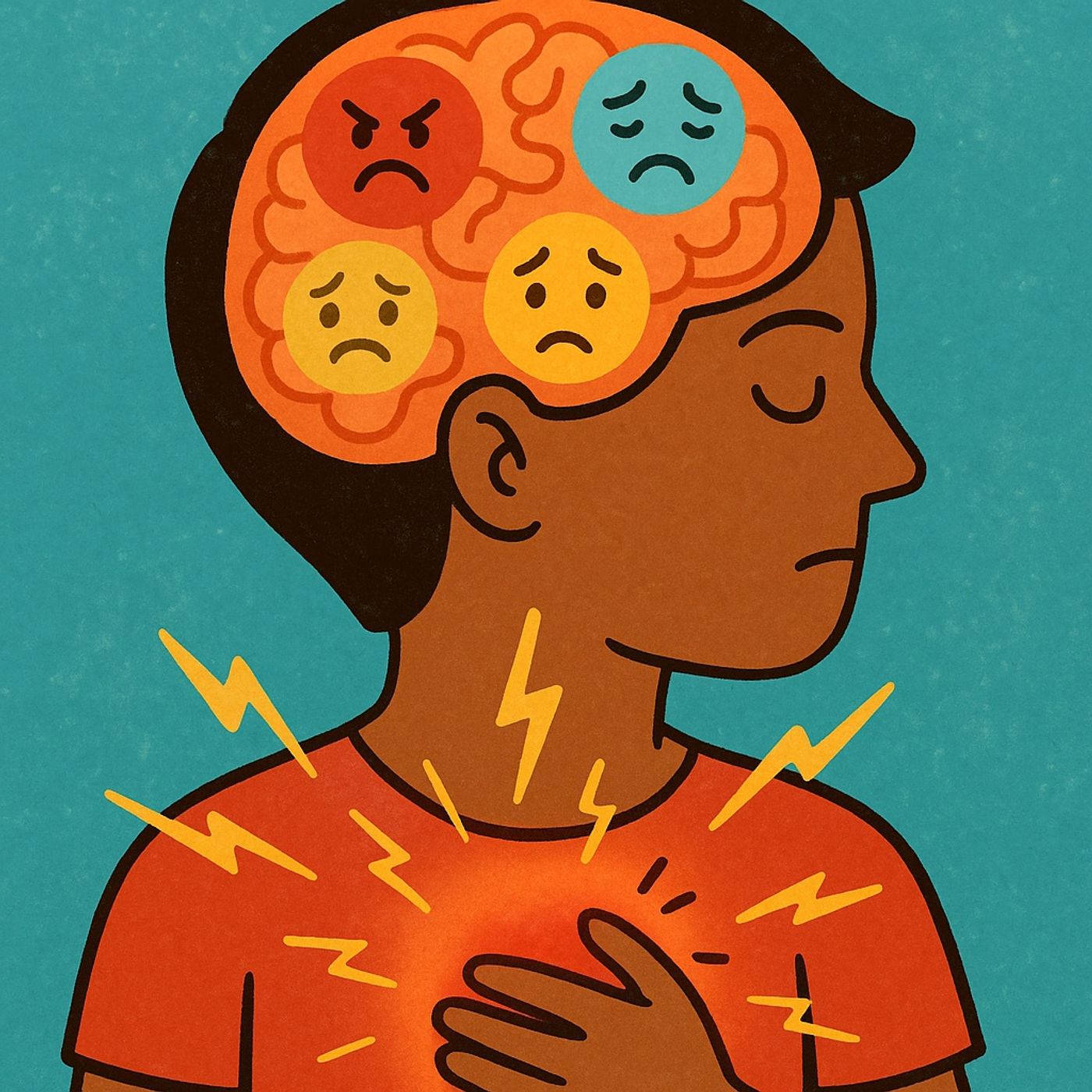
Examines the difficulty people face in acknowledging their true emotions, noting that feelings such as anger, sadness, guilt, or envy are often suppressed to preserve a calm self-image. When the mind refuses to confront these emotions, the neglected conscience finds another channel: the body.
Unexpressed feelings may manifest as physical symptoms—illness, pain, or twitches—often in specific areas of the body linked to particular emotions. These ailments are frequently misunderstood by doctors as purely physical malfunctions, overlooking their psychological roots.
The central insight is that unfelt feelings do not disappear; they resurface in d...
The Lie of the Inner Critic: How Your Childhood Blame Strategy Became Your Adult Prison
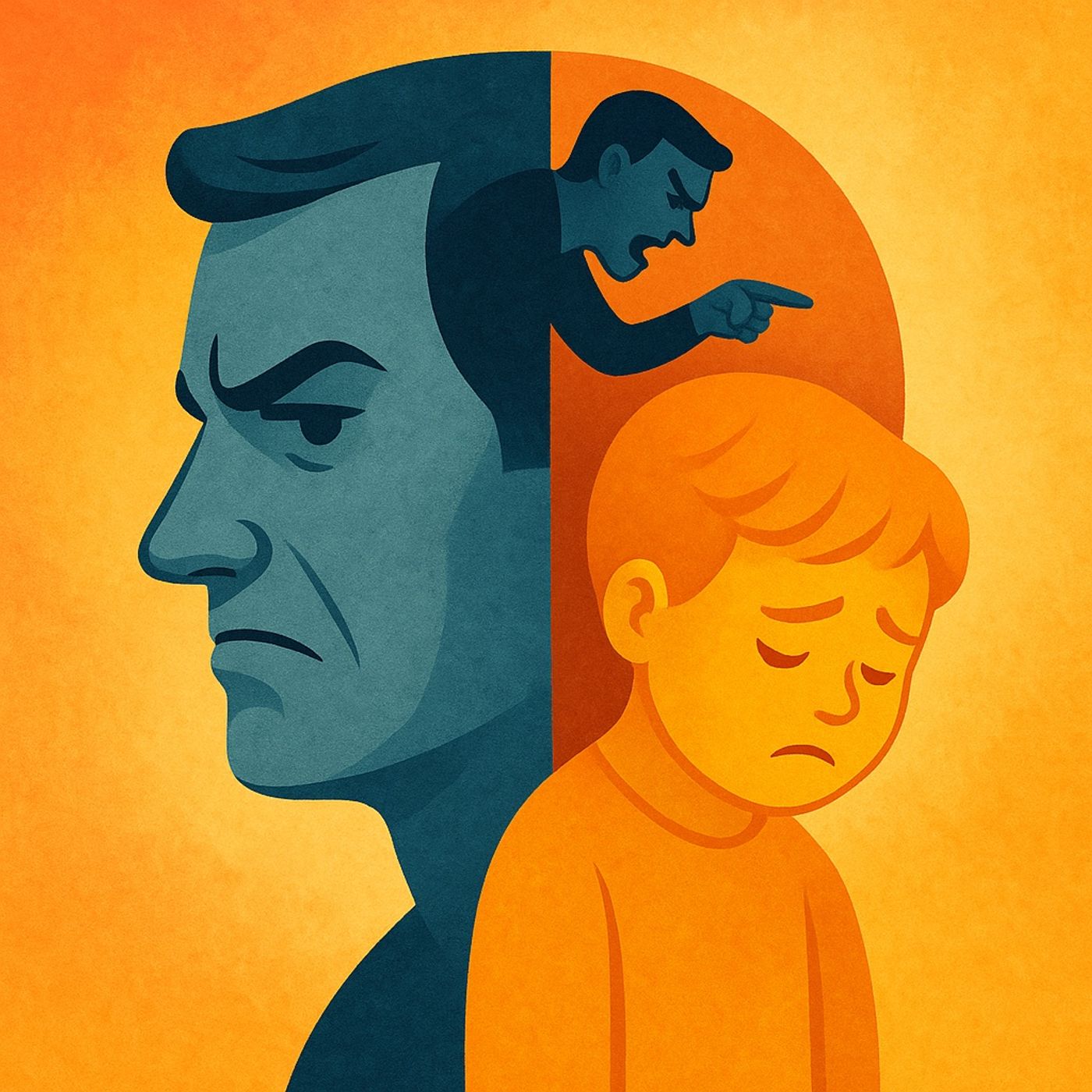
Explores the origins of the inner critic, that harsh internal voice which convinces people they are failures or "losers" despite evidence of success. It explains that this critical voice often develops in childhood as a way to make sense of painful or confusing experiences, such as neglect or abandonment by a parent.
For a child, believing “I am bad” can feel safer than accepting the frightening possibility that the world is unfair or that a caregiver is incapable of love. This coping mechanism preserves a sense of order but leaves deep scars.
As adul...
The Conflict Is Not the Point: How to Spot Psychological Manipulation and Win the Battle for Your Peace

Advises against engaging in arguments, even when provoked by partners, colleagues, or strangers. It suggests that such provocations are less about the issues at hand—such as career choices or rudeness—and more about the other person’s attempt to offload their own inner turmoil.
By drawing others into conflict, people often seek to use them as outlets for their anger, sadness, or unresolved pain. Recognizing this dynamic allows one to resist the bait, conserving emotional energy rather than fueling someone else’s distress.
The key takeaway is to avoid searching for rational explanat...
Why True Love Terrifies Us: The Psychology of Romantic Sabotage and Fractured Childhood Bonds

Explores the paradoxical behavior of individuals who long for love yet consistently avoid or sabotage it. This avoidance is often rooted in early experiences where affection felt unsafe, unreliable, or tinged with unkindness. To protect themselves, such individuals developed a deep reliance on self-sufficiency and emotional isolation.
As adults, this manifests in subtle but persistent ways: choosing partners who are unlikely to provide lasting commitment, undermining relationships as they deepen, or creating distance precisely when happiness seems within reach.
The analysis concludes that this behavior is not evidence of a lack of desire...
Why You Reject Kindness: The Psychological Fortress and the Fear of Happiness

Examines the paradox of feeling repelled by genuinely kind people, particularly in romantic contexts. While minor flaws may disrupt a date, the reaction here is more unsettling: a deep discomfort with warmth and care. This response often stems from past experiences of neglect or emotional abandonment, where reliable kindness was absent.
To cope, the individual may have built defensive mechanisms—such as cynicism, detachment, or preemptive rejection—that once safeguarded them from disappointment. When faced with genuine kindness, these defenses are challenged, making affection feel threatening rather than soothing.
The analysis suggests that the...
Your Personality Isn't a Flaw, It's an Ancient Survival Strategy: Why Your Childhood Adaptations Are Sabotaging Your Adult Life
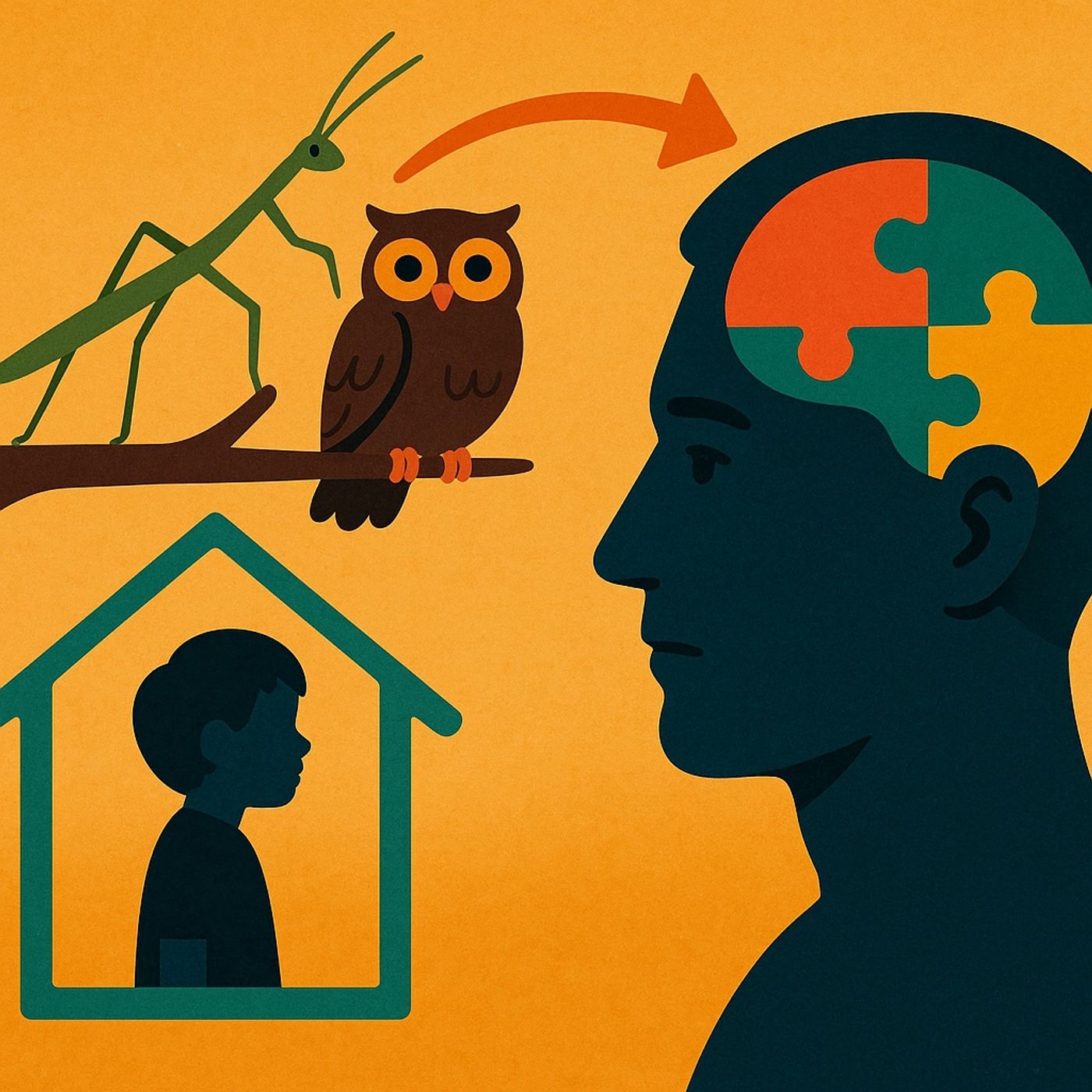
Explores the idea that character traits in both animals and humans function as adaptive strategies tailored to maximize survival in specific environments. Just as owls, stick insects, or other creatures evolve traits suited to their habitats, humans develop core behaviors in response to their earliest environment: the family.
Traits often judged as negative—such as dishonesty, aloofness, or excessive compliance—may have once been highly intelligent coping mechanisms for surviving difficult family dynamics, including neglectful or volatile caregivers.
The central challenge arises when these childhood adaptations persist into adulthood, where they can hinder rela...
The Blame Script vs. The Authorship Choice: Reclaiming Your Power from the Victim Mindset
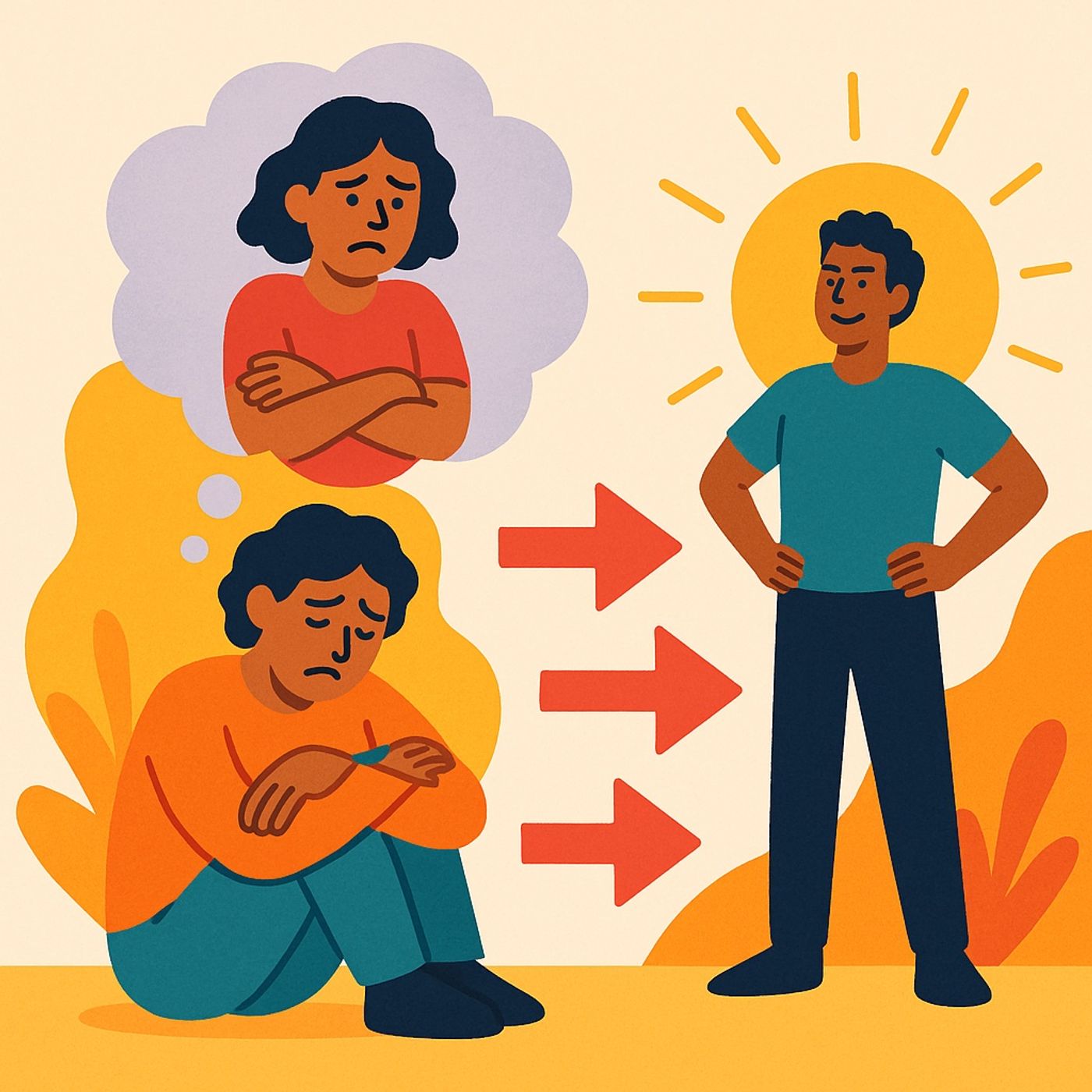
Presents a self-assessment quiz designed to help individuals identify whether they are operating from a victim mindset. It includes ten multiple-choice questions prompting participants to reflect on their reactions to challenges, sense of control, responses to others’ success, and personal narratives. After completing the quiz, a scoring system categorizes results from “deep in the victim mindset” to “grounded in self-leadership,” offering practical guidance and actionable steps for moving toward a more empowered mindset. The overall purpose is to promote self-awareness, accountability, and personal growth, emphasizing that while external circumstances may not be controllable, responsibility for one’s healing lies within.
When Red Flags Feel Like a Lullaby: How Childhood Trauma Traps You in Toxic Relationship Patterns

Explains why people often attract or overlook warning signs in romantic partners. It suggests that these traits can feel “familiar” because they mirror behaviors experienced in childhood, particularly from parents. Four common patterns are highlighted: avoiding conflict due to childhood examples of mistakes being ignored, being overly critical from constant parental scrutiny, developing a savior complex from over-dependent or boundary-lacking parents, and feeling “never good enough” because of parental disappointment or comparison. The goal is to help individuals recognize these familiar patterns so they can prioritize their well-being and pursue healthier relationships.
The Four Invisible Signs You're Drifting: Spotting the Subtle Shifts in Your Mental Climate
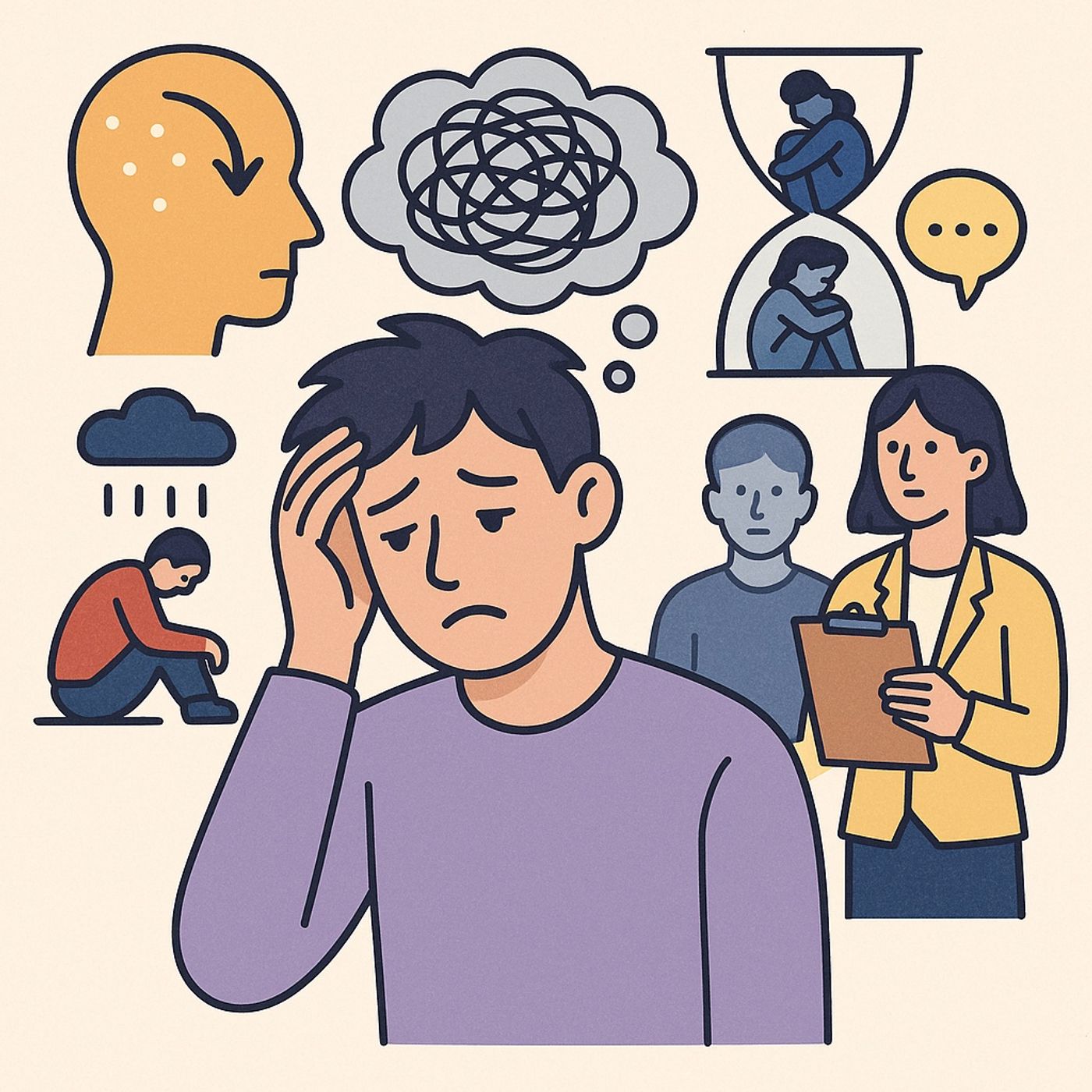
Outlines several key indicators of declining mental health, highlighting that change is the only constant in life, including one’s mental state. Signs to watch for include a noticeable drop in cognitive functioning, increased social withdrawal beyond normal alone time, persistent low energy, and a feeling of not being oneself, such as depersonalization or derealization. The discussion emphasizes the importance of seeking professional guidance rather than relying solely on self-assessment.
Intent vs. Impact: How to Decode the Silent Alarm Bells and Repair Unintentional Harm
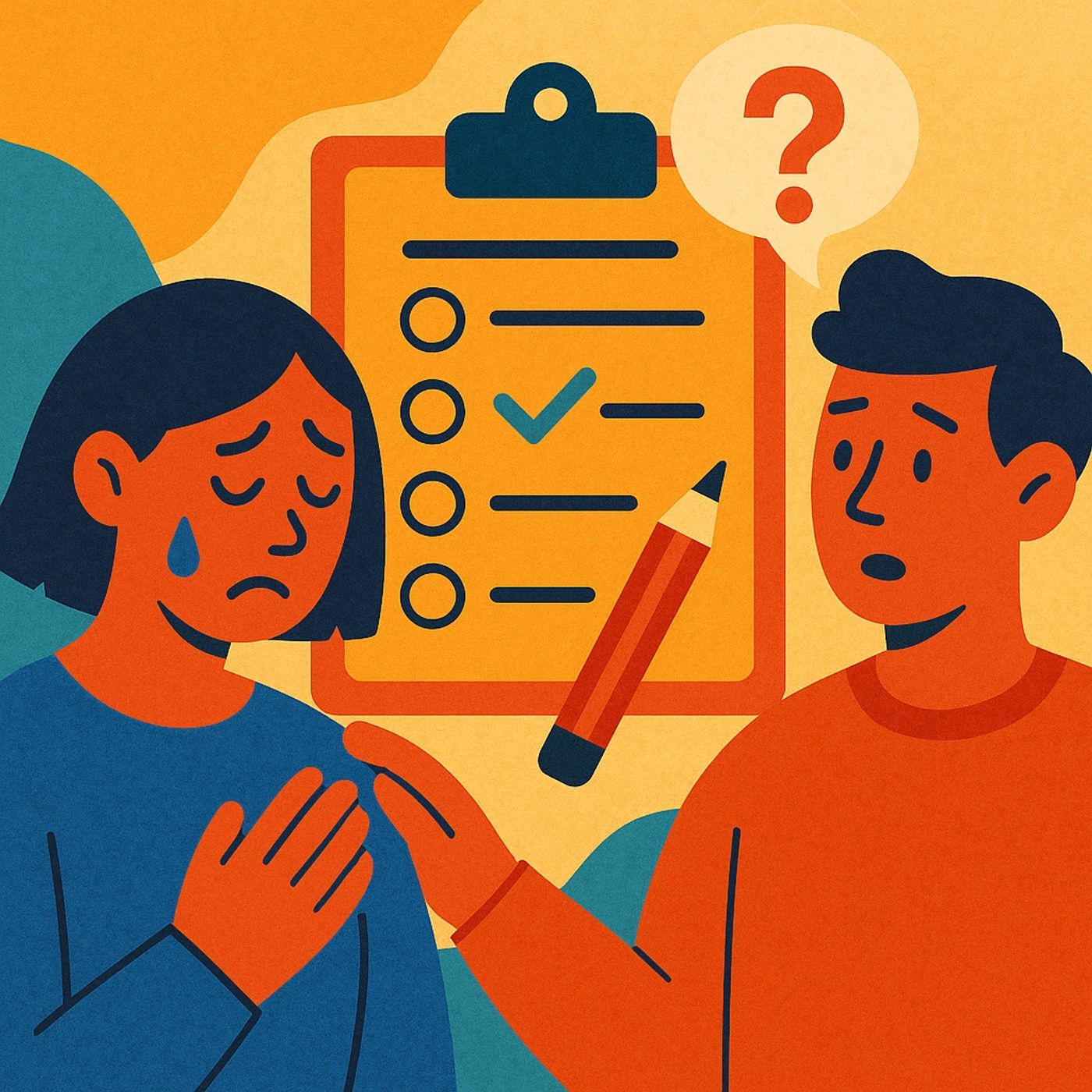
Describes a self-assessment quiz aimed at helping individuals evaluate whether they may have unintentionally caused emotional harm to a friend, family member, or partner. The quiz features ten multiple-choice questions that explore how the other person responded, the intentions behind one’s actions, and personal reflections and follow-up behaviors. Scores provide insight into how emotionally safe the other person likely felt, ranging from careful handling to potentially causing discomfort. The overall goal is to promote self-awareness, reflection, and proactive communication to strengthen relationships and build trust.
Decoding Your Inner Voice: The 5 Self-Talk Profiles and How to Edit Your Internal Narrative from Critic to Ally

Describes a self-assessment quiz that helps individuals evaluate the nature of their negative self-talk. The quiz consists of ten multiple-choice questions focusing on responses to mistakes, challenges, praise, and social comparisons. Its purpose is to foster self-awareness about internal dialogue and encourage a shift away from overly critical thoughts. Based on total scores, participants are categorized into five groups—from being extremely hard on oneself to consistently self-compassionate—with practical, actionable advice provided for improvement at each stage.
The Quiet Crisis: Unmasking the Subtle Signs and Hidden Scale of Anxiety Disorders

Outlines a discussion on anxiety, emphasizing its serious and often subtle impact on daily life. It describes anxiety disorders as legitimate medical conditions, noting that they can take forms such as generalized, social, or panic disorders. The material highlights behavioral signs like avoiding eye contact or excessive rumination, which may go unnoticed by others. It also encourages compassion and understanding toward those experiencing anxiety and invites reflection on how society can better support affected individuals.
The 10 Subtle Psychological Habits That Make You Instantly Likable and Profoundly Trusted

Outlines ten subtle, psychology-based habits that can enhance a person’s likability. It emphasizes that being likable is less about charm and more about small, intentional actions that make others feel seen, safe, and understood. Key behaviors include using someone’s name to engage their brain’s reward system, mirroring body language to build trust, asking thoughtful follow-up questions, and sharing small moments of vulnerability to create emotional connection. The overarching idea is that true likability comes from leaving others feeling better after interacting with you.
The Iron Fortress of One: Six Signs Your Self-Reliance Is Actually Hyperindependence and a Trauma Response

Explains hyperindependence as a coping mechanism that often develops after traumatic experiences. It is marked by an intense reluctance to seek or accept help due to fear of vulnerability and potential disappointment. Signs of hyperindependence include difficulty expressing emotions, neglecting personal needs that can lead to burnout, and a fear of intimacy. Those affected often feel a constant need for control, seeing self-reliance as the only protection against future pain. Recognizing these patterns is an important first step toward healing and seeking support.
Bed Rotting: How Your Perfect Escape Hatch Becomes a Burnout Trap
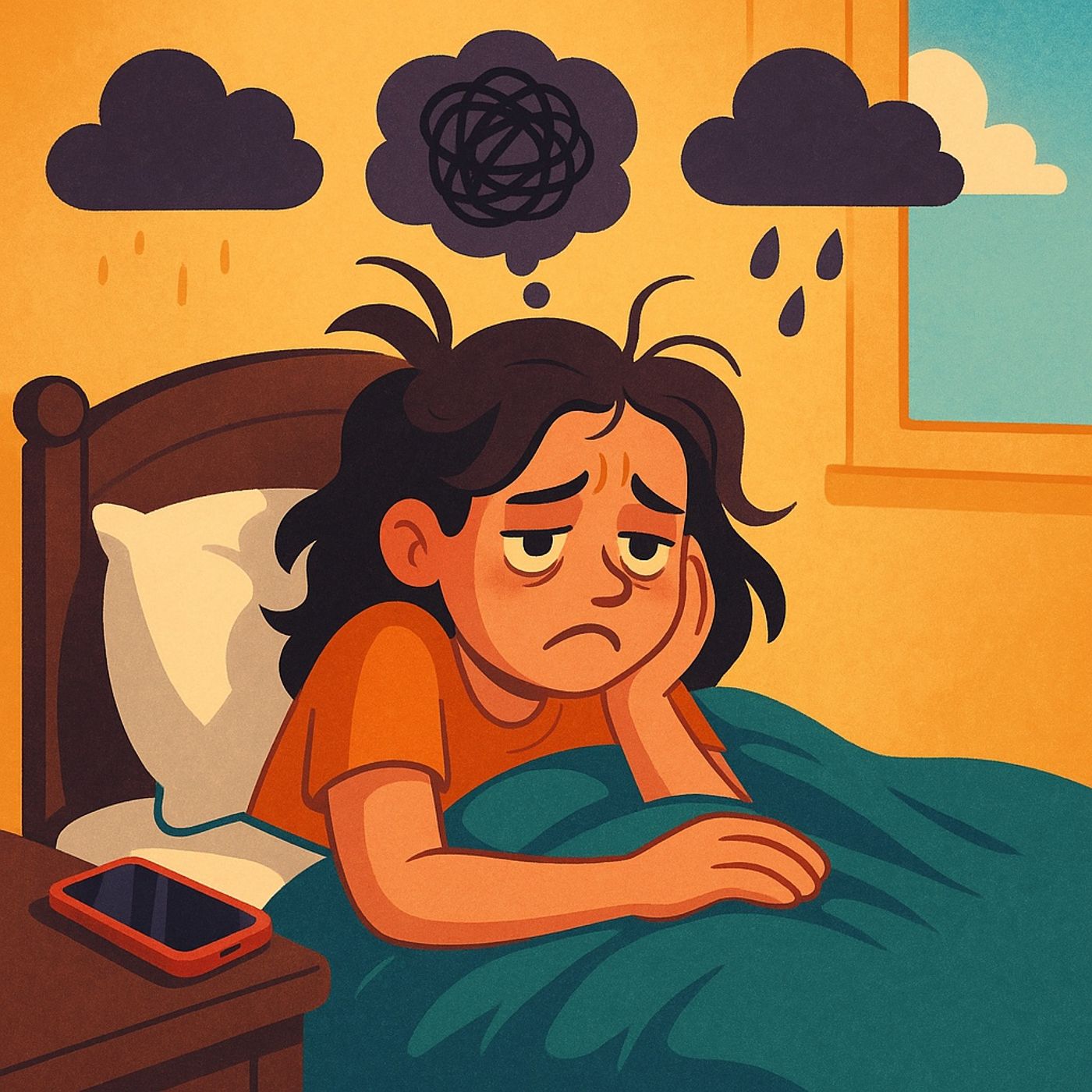
Explores the concept of “bedrotting,” which refers to spending excessive time in bed while awake—scrolling, binge-watching, or avoiding responsibilities—as a way to cope with feeling overwhelmed or burnt out. While it may feel comforting at first, prolonged bedrotting can worsen mental health issues like depression and anxiety. Warning signs include difficulty resisting staying in bed, increased anxiety from procrastination, reduced self-esteem from inactivity, and concern from loved ones. The suggested approach is not to aim for immediate perfection, but to start small—completing one task or doing light exercise—to gradually rebuild motivation and mental resilience.
<...
Beyond the Sadness The Seven Physical Signs Your Depression Is Hiding in Your Body

Outlines lesser-known signs of depression that go beyond feelings of sadness or hopelessness, emphasizing that the disorder can have physical and cognitive manifestations. Seven often-overlooked indicators include: unexplained physical pains like back or neck aches, difficulty concentrating or forgetfulness, changes in vision or sensory perception, sleep disturbances (sleeping too much or too little), reduced sexual desire, and digestive issues such as stomach cramps or irregularity. The material highlights that depression can also exacerbate other health problems. It encourages individuals experiencing these symptoms to seek professional support rather than relying solely on self-assessment.
<...
The Illusion Trap: Six Brutal Signs Your Love is Built on Fantasy, Not Reality

Outlines six signs that a relationship may be driven by infatuation rather than true love, helping individuals assess whether it might be time to reconsider the partnership. Key indicators include: rushing the relationship, expecting a perfect partner, lacking genuine comfort and vulnerability, becoming physically or emotionally distant, developing an external focus away from the partner, and experiencing physical symptoms of anxiety. The material emphasizes that infatuation often demands immediate gratification and idealized expectations, whereas true love involves patience, acceptance, and emotional connection, guiding readers to differentiate temporary obsession from lasting affection.
<...
Communication Flashpoints: Decoding the 5 Styles That Secretly Build and Break Your Relationships

Presents a self-assessment quiz to identify personal communication styles. It consists of ten situational questions with multiple-choice answers, each linked to a different unhealthy or toxic communication pattern. Based on the responses, participants may fall into one of five styles: Defensive, Avoidant, Dismissive, Emotionally Safe, or Mixed. The material describes the traits, psychological underpinnings, and potential negative consequences of each style, while offering practical strategies for improvement. The quiz is intended as a tool for self-awareness, helping individuals foster healthier and more effective interpersonal relationships.
The Five Brutal Questions That Determine If Your Relationship Is Built on Love or Loneliness

Outlines five essential questions to evaluate whether a romantic partner is truly compatible. It begins by noting the high failure rate of modern relationships to stress the importance of thoughtful partner selection. The questions encourage self-reflection on aspects such as how one feels in comparison to their partner, whether the relationship stems from genuine fulfillment or loneliness, and the ability to accept imperfection. The material emphasizes authenticity, valuing the partner as they are, and fostering mutual support and respect. Overall, it guides individuals to confront these realities to make wise and intentional decisions about long-term romantic commitment.
<...
Why Letting Go is Hard: Unpacking Emotional Obsession, Grief in Disguise, and Reclaiming Your Worth

Explores the experience of obsessing over someone for an extended period, even after they have emotionally moved on. It frames this fixation as a form of grief, centered on the loss of the relationship, the idealized fantasy of what could have been, and the feeling that self-worth is tied to the other person’s attention. Common reasons for staying fixated include seeking closure, romanticizing positive memories, and linking personal value to external validation. The material emphasizes that letting go requires reclaiming self-worth and recognizing that true closure comes from within, highlighting the importance of prioritizing one’s own well-being over...
The Secret Loves of Quiet Minds: How Introverts Recharge, Observe, and Master the World

Outlines four activities that introverts secretly enjoy, highlighting that these pursuits are often kept private because sharing them can feel vulnerable. Introverts tend to view these activities as a personal sanctuary. The activities include observing their surroundings closely, engaging in deep one-on-one conversations, seeking intellectual stimulation through complex ideas, and planning or organizing to maintain structure and focus. The material emphasizes the importance of respecting introverts’ boundaries and allowing them space to recharge while engaging in the activities they find most fulfilling.
Icarus, Daedalus, and the Hidden Moral: Are You Afraid of the Crash or the Tower?

Examines the myth of Daedalus and Icarus to draw out a less familiar lesson. While the story is usually cited as a warning against overconfidence and pride, it also highlights an opposite danger: the tragedy of staying too cautious and confined, never taking a chance on freedom or growth. In this interpretation, Daedalus represents the balanced model—combining ingenuity with prudence—to break free from oppression without recklessness. The broader message is that although ambition carries real risks, there is an equally serious cost to never daring to pursue life’s possibilities.
Why Your Brain Betrays Past Decisions: Defeating the "Emotional U-Turn" and Self-Sabotage

Explores how people often second-guess their own past decisions, turning over old choices in their minds and wondering if they should have acted differently. It uses everyday situations—such as reconsidering a breakup, doubting a career move, or regretting a travel decision—to show how easily self-doubt creeps in. Over time, memories tend to get softened and edited, especially the unpleasant parts, which can distort our view and make previous decisions look harsher than they really were. This mental quirk often intensifies when someone feels lonely or uncertain, tempting them to rewrite history in a more comforting way. The core...
The 9 Biggest Psychological Traps That Make Smart People Choose Miserable Relationships

Explains that choosing a long-term partner is one of the most consequential decisions of a lifetime, yet many of us approach it with habits that undermine our chances of real happiness. It outlines nine common mistakes, such as rushing into relationships out of a fear of loneliness, clinging to an unsatisfying partner because of the time already invested, overlooking serious character flaws, dismissing the importance of physical attraction, or falling into the trap of perfectionism while searching for “the one.” The overall message is that a secure and fulfilling partnership requires honest self-reflection, realistic expectations, and the courage to choo...
Forget Serious Chats: Why Banana Questions and Bad Accents Are the True Measure of Intimacy

Challenges the notion that truly loving and emotionally mature couples must always engage in serious, intellectual discussions. Instead, it highlights that the strongest relationships often feature playful, nonsensical chatter—from silly tangents about food to random observations about aches and pains. This kind of talk signals a deep level of trust and emotional freedom, allowing partners to reveal their quirky, unfiltered selves without fear of judgment. In this view, sharing spontaneous, “regressive nonsense” isn’t trivial at all; it’s one of the most powerful forms of intimacy, surpassing the weight of purely rational conversation.
How to Beat Your Inner Demons: The Ancient Greek Strategy of Pre-Commitment (Odysseus and the Sirens)

Uses the Greek myth of Odysseus and the Sirens as a vivid metaphor for handling personal weakness. Odysseus’s decision to be tied to the mast and to instruct his crew to ignore his pleas illustrates a powerful life strategy: remove temptation in advance rather than relying on willpower in the moment. This lesson applies to modern challenges like avoiding toxic relationships, steering clear of conflict with difficult colleagues, or resisting addictive foods. It suggests that true maturity lies in admitting where self-control is fragile and enlisting others to help safeguard good decisions. Choosing a little temporary embarrassment by de...
Why We Stay: Breaking the Childhood Contract That Makes Us Addicted to Unreliable Partners
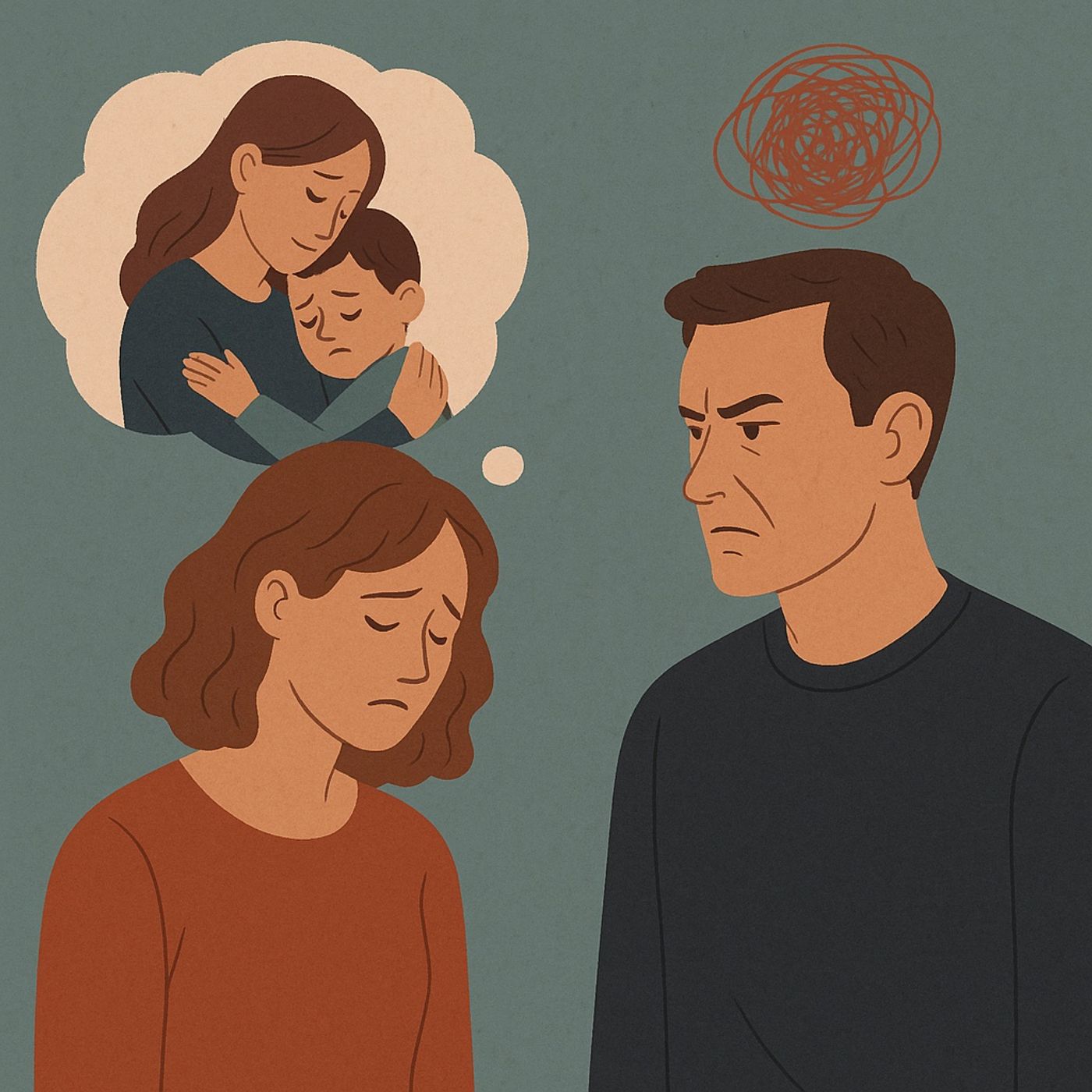
Explores why some people keep ending up in unfulfilling or damaging relationships, tracing the pattern back to early emotional experiences. It suggests that as children, many learned to idealize disappointing parents while questioning their own worth, creating a powerful habit of hoping that someone cold or hurtful will one day become loving. In adulthood, this turns into an addiction to painful expectations, where suffering is misread as proof of love. The passage advises letting go of the belief that an unkind partner will change and stresses that the only valid reason to remain in a relationship is consistent kindness...
Banish Your Ghost Father: African Wisdom vs. Freud on Inherited Trauma and Ancestral Grip

Examines the deep historical roots of therapeutic practice, showing that ideas central to modern psychotherapy appeared long ago in various traditional African societies. It describes how groups such as the Yoruba, Oromo, and Hutu interpreted mental distress as a sign of disharmony with the spirits of deceased relatives or ancestors. One example is the Yoruba ritual with a babalao (diviner), who uses a ceremonial tapper to communicate with these spirits to ease the sufferer’s troubles—often seen as linked to self-sabotage or persistent unhappiness. In this tradition, the practitioner may either negotiate with a disruptive ancestor or firmly send...
The Barricade of Strength: Why Men Can't Talk About Their Inner Chaos and the Radical Fix for Male Loneliness
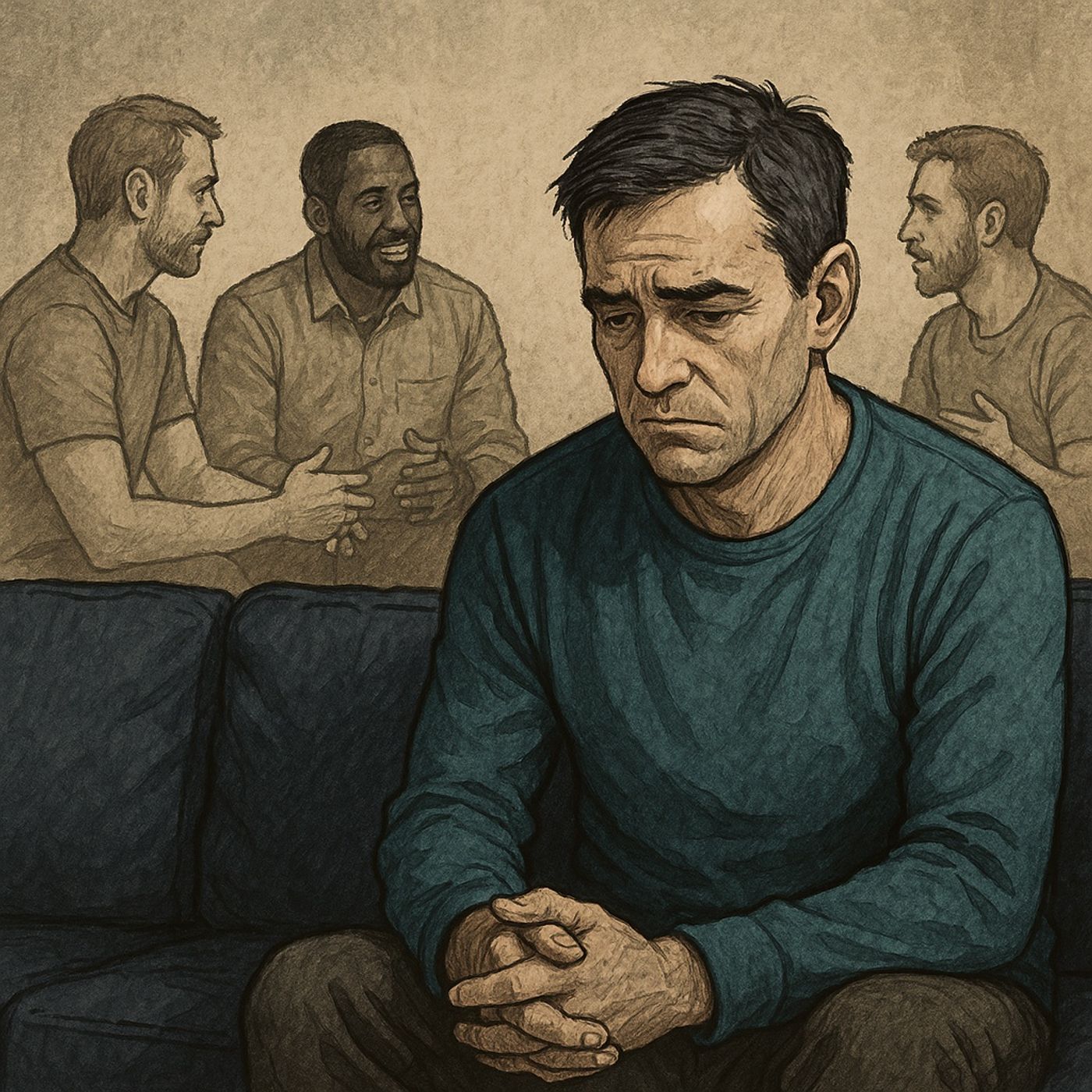
Explores the psychology of male loneliness, arguing that meaningful friendship is especially challenging for men. True connection demands mutual vulnerability, yet cultural expectations of masculinity encourage men to appear strong, unshaken, and self-reliant, making emotional openness feel risky. This dynamic turns male loneliness into a systemic problem rather than a personal flaw, since men are conditioned to avoid honesty about their fears and weaknesses. The piece suggests that acknowledging the issue openly and using gentle conversational prompts can help men lower their guard. It ends on the idea that men are fully capable of deep empathy and closeness, but...
The Ghost in Your Life: Why You Repeat Painful Patterns and How to Finally Break the Repetition Compulsion
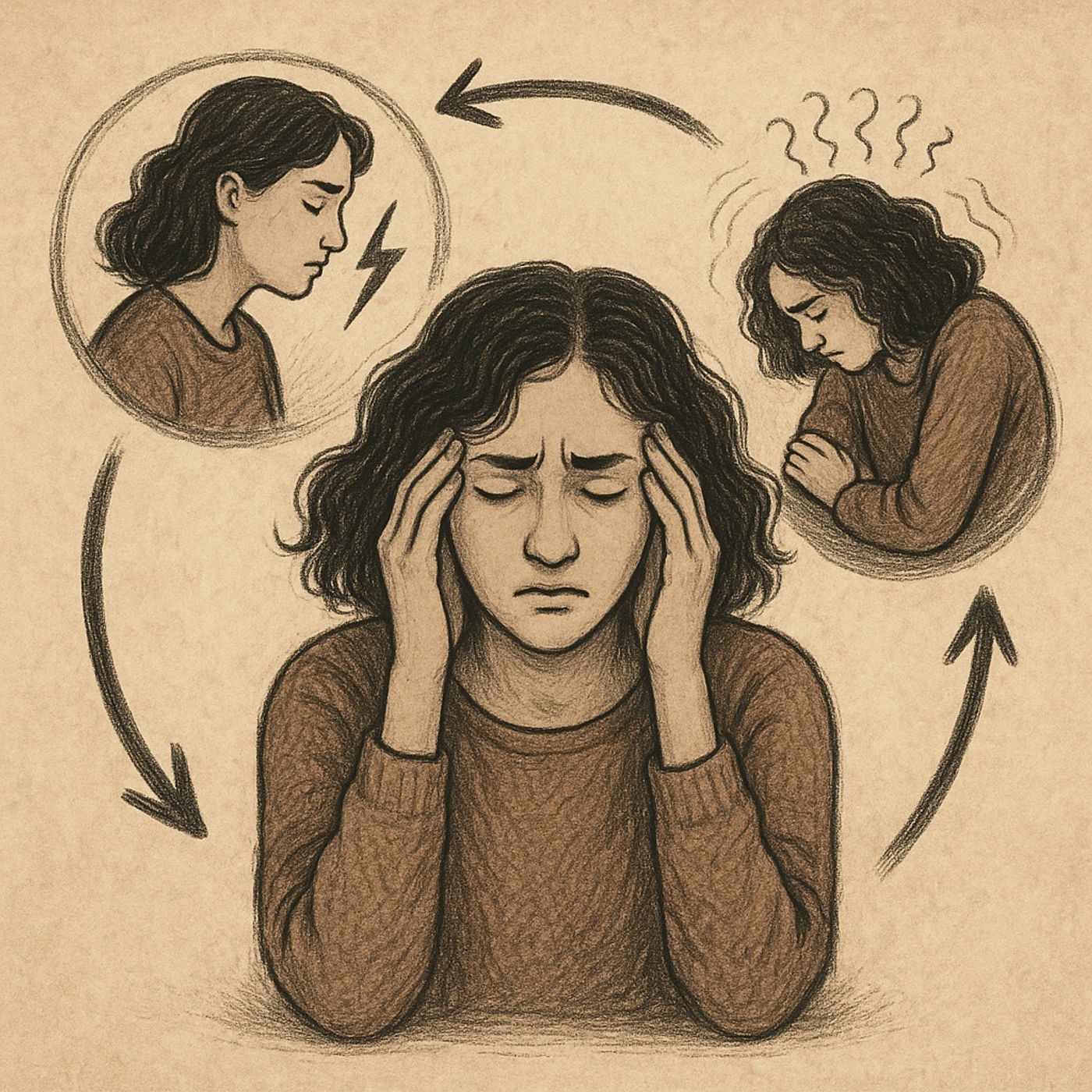
Explains the idea of repetition compulsion—the tendency to keep ending up in similar painful situations, like unhealthy relationships or recurring anxiety. This isn’t random; it’s described as an unconscious attempt to revisit old wounds in order to understand and resolve them. Such patterns usually stem from childhood experiences, when a person didn’t yet have the tools to process emotional pain. The cycle keeps repeating until the underlying hurt is fully faced and released. Real freedom, according to this view, comes from courageously acknowledging, grieving, and integrating those early traumas so the mind no longer feels driven t...
Nobody is Coming to Save You: The Radical Truth of Self-Mastery, Isolation, and the Power of Pain

A powerful motivational message about the necessity of radical self-reliance. It emphasizes that no one is coming to save you and that true transformation begins with taking full responsibility for your own life. Repeated themes include confronting insecurities, making hard trade-offs to cut out distractions and negative influences, and embracing pain and struggle as a catalyst for strength and growth rather than a sign of defeat. The overall call is to practice extreme ownership, choosing the “pain of success” over the “pain of failure” through relentless work and unshakable self-belief.
Billionaire Mind OS: Code Reviewing the Cognitive Script for Massive Wealth and Scarcity Elimination

A stream of wealth-focused affirmations aimed at cultivating a millionaire or billionaire mindset. It repeatedly links personal identity to prosperity, encouraging the speaker to see themselves as a magnet for money, luxury, and abundance. Central themes include trusting one’s financial destiny, using positive self-talk to shape beliefs and habits, and applying the law of attraction to manifest success. Overall, it promotes consciously creating a rich life through unwavering belief, focused action, and the release of fear in favor of limitless potential.
Weaponize Your Flaws: The Brutal Truth About Self-Creation, Accountability, and Why Having Nothing Makes You Dangerous

A forceful motivational message about radical self-accountability and embracing struggle and discomfort as the route to genuine success. It stresses the importance of facing reality head-on, abandoning excuses, and transforming insecurities into fuel for growth by choosing hard work and consistency over comfort and mediocrity. Central to the message is cultivating self-belief and internal drive, committing fully to personal goals, and prioritizing self-development rather than living by others’ expectations. Overall, it is a call to relentless action, perseverance, and grit, urging the listener to push through pain to achieve fulfillment and become a model of their own highest standards.
The Psychology of Going All In: How Full Commitment Guarantees Clarity and Kills the 'What If'

Conveys motivational guidance from Matthew McConaughey focused on living a fully engaged and intentional life. He urges people to commit wholeheartedly to their decisions rather than approach them half-heartedly, emphasizing that discovering the real outcome—whether success or failure—is essential for growth. His message highlights the power of self-discovery through eliminating what one is not, maintaining self-respect, and fostering a spirit of gratitude that includes both positive and difficult experiences. Overall, the advice encourages individuals to take responsibility, make deliberate choices, and earn their way forward, treating life as an ongoing pursuit of striving toward the seemingly unachievable.
The Morning Test: Unlocking Your Potential By Deleting Waste, Embracing Courage, and Daring Greatly

A powerful message about the transformative role of courage, persistence, and self-belief in reaching one’s highest potential. It frames courage not as the absence of fear but as action taken despite it, contrasting this with the passivity of letting fear dictate behavior. Throughout, it underscores the importance of clear focus on goals, cutting out distractions, and recognizing that true growth arises from uncomfortable challenges where failure serves as an investment in learning rather than a permanent defeat. The content also calls on readers to embrace authenticity and act with a sense of urgency in pursuing their life’s purp...
The Abundance Mindset Blueprint: Rewriting Your Internal Code for Financial Magnetism

A collection of first-person affirmations centered on attracting money, wealth, and success. These statements repeatedly affirm the speaker’s worthiness of financial abundance, luxury, and freedom, covering ideas such as effortless wealth creation, wise financial stewardship, and the continuous flow of income from multiple sources. Interwoven throughout are spiritual concepts—alignment with universal energy, divine timing, and abundance as an expression of inner light—framing wealth as both a material and spiritual state. Overall, the message offers a practice of manifesting a rich, secure, and spiritually fulfilling life through positive conviction and gratitude.
The Ultimate Antidote to Anxiety: How Action and Discipline Collapse the 'What If' Catastrophe Loop
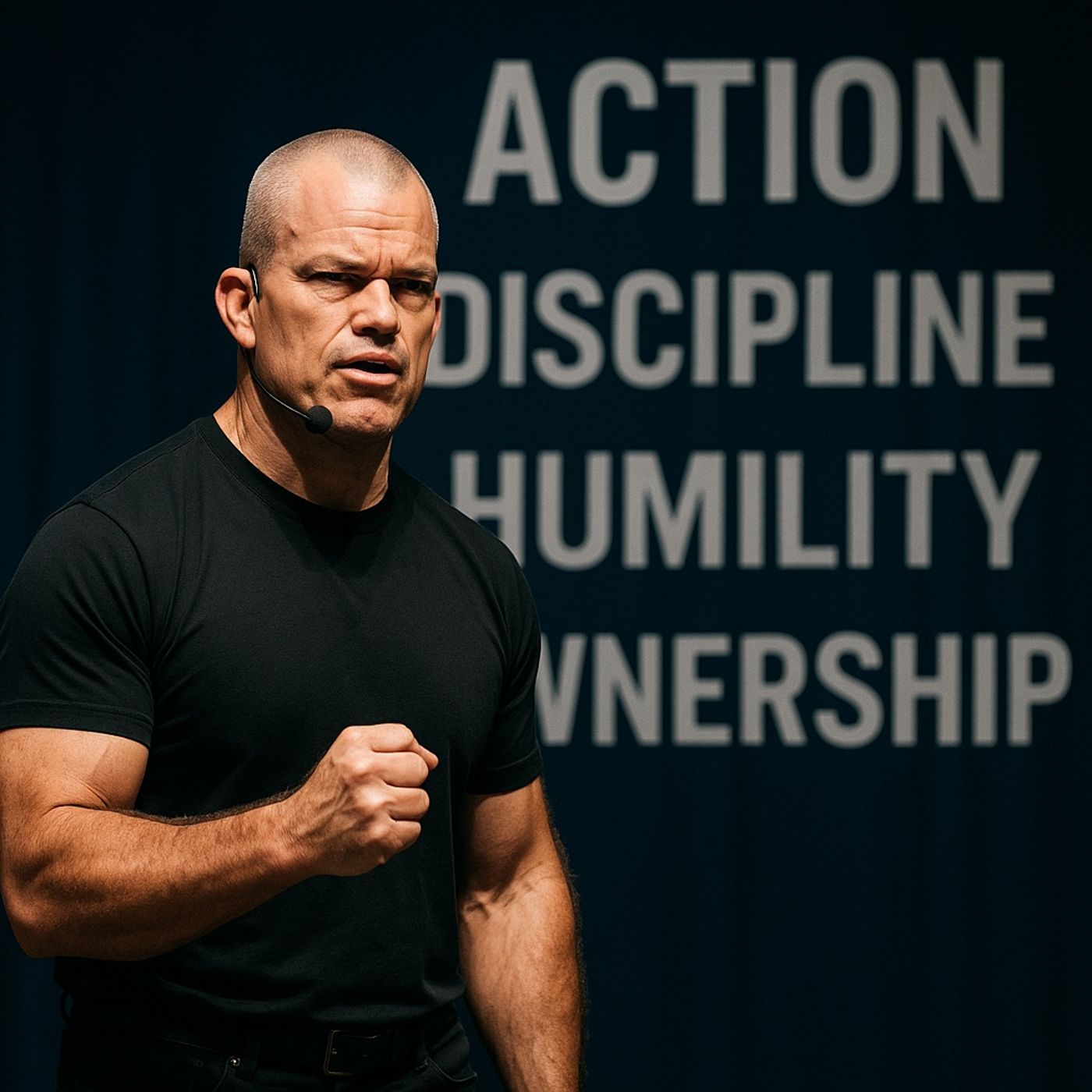
A talk delivering motivational and practical guidance for confronting life’s challenges. It stresses that taking action is the antidote to fear and anxiety, noting that hesitation amplifies imagined problems while decisive movement quickly diminishes them. A central message is the superiority of discipline over motivation—discipline creates consistency and reliability even when feelings fluctuate. The speaker also underscores the value of combining humility in preparation with confidence in execution, as well as practicing extreme ownership, a mindset in which individuals accept full responsibility for their circumstances as the first step toward change and freedom.
